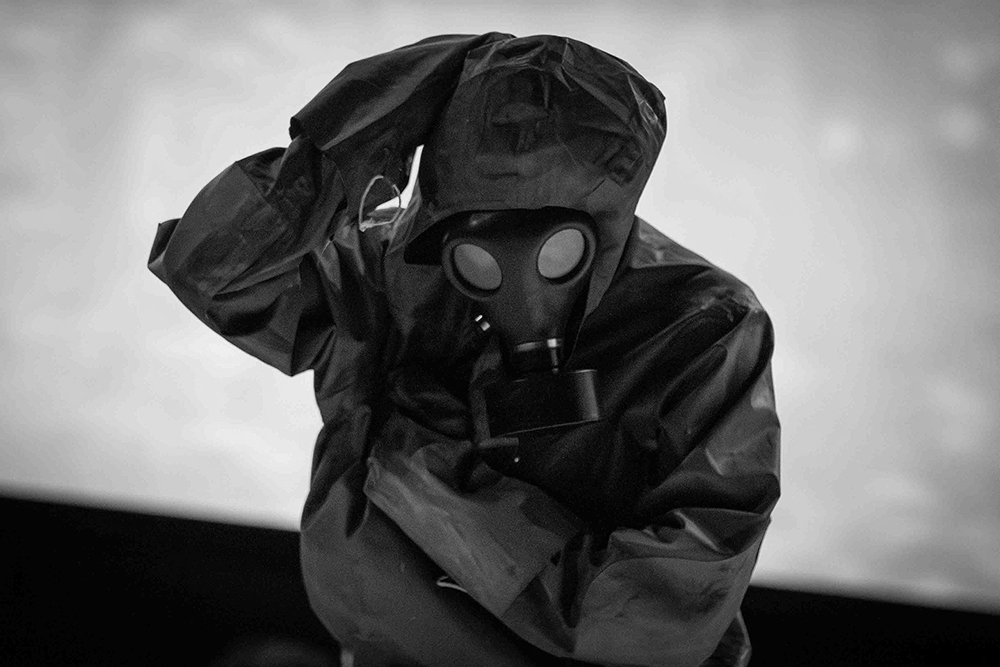“Towards Documentary Choreography - Intermedial Approaches in Working with Extra-Aesthetic Materials” is the title of Arkadi Zaides’ PhD research project, which is conducted as a practice-based joint PhD between the University of Antwerp, The Royal Conservatoire Antwerp, the University of Ghent and KASK/School of Arts (HoGent). The project will run from 2021 to 2025 and will consist of a series of workshops, lectures, publications, master classes, and performances that explore the concept and practice of ‘documentary choreography’.
DOCUMENTARY CHOREOGRAPHY
This multifaceted research is encompassed by the term 'documentary choreography,' which refers to a choreographic approach integrating documents—such as interviews, testimonies, video materials, and archival information—as sources of factual information to challenge and address social and political realities. By merging these documents with embodied practices, documentary choreography strives to transcend the artistic realm and actively engage with the political sphere. Through the articulation and exploration of 'documentary choreography,' Arkadi Zaides reflects on his artistic endeavors over the past decade. This process also fosters connections with other practitioners and scholars who share similar interests, thereby cultivating a collaborative network within this field.
NECROPOLIS UNITED
The Research Foundation Flanders (FWO) Medium-Scale Research Infrastructure Project, Necropolis United, aims to develop an integrated, sustainable, open-source information system to commemorate the deaths of people on migration routes to Europe. Its primary goal is to engage concerned communities in the memorial's creation. The project employs "Multilingual Encounters" as its methodological approach, bringing together artists, researchers, activists, and members of organisations led by undocumented people in Brussels to explore collective modes of mourning within physical and digital spaces. Necropolis United critically assesses technology's role, often used for surveillance and impacting the lives (and deaths) of those it intends to support. Consequently, it seeks to be a nexus for communities of knowledge, allowing diverse groups to influence both the methodology and outcomes of the forthcoming virtual platform.
